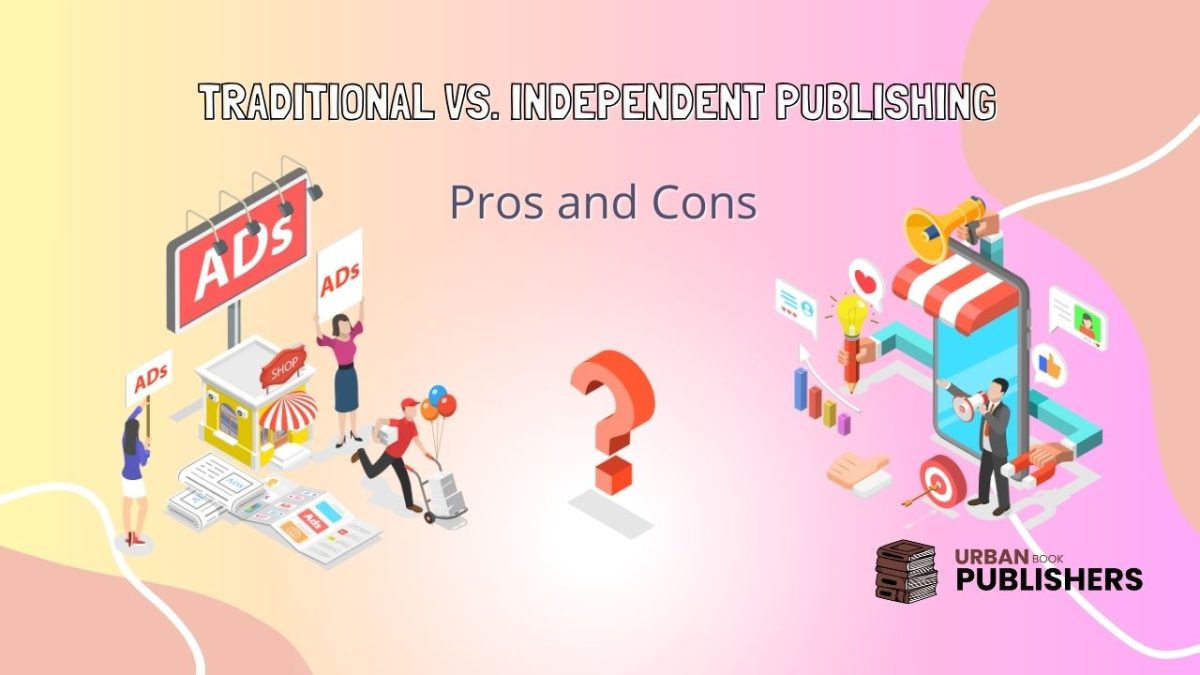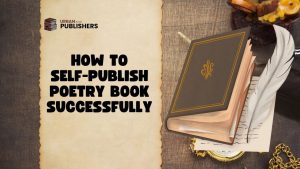
Publishing
Putting out books has changed a lot in recent years. There are two main ways to print a book now: the traditional way and the independent way. Working with big publishing companies is considered traditional while writing independently is considered independent. Both of these ways are very popular and have their own Traditional vs. Independent Publishing: Pros and Cons. So let’s dive into the article and study Traditional vs. Independent Publishing: Pros and Cons.
1. Traditional Publishing:
The usual way for writers to get their books out into the world has been through traditional publishing. It lets writers talk to experts and get their books into more hands. But it can also be hard and take a long time if there is a lot of competition.
2. Pros of Traditional Publishing:
Traditional publishing has been the most used method by most writers. book publishers in new york city bring you some of the pros of traditional publishing.
3. Get help from experts.
In traditional publishing, you get help from a group of experts, similar to what is described in What Does a Book Publisher Do? They help make your book the best it can be by editing, proofreading, and designing the cover. They help you improve your writing and make it good by working with you.
4. Find Your Book in More Places
Traditional authors have large networks that they can use to spread the word about your book. They know a lot about bookstores, libraries, and Internet shops, as outlined in How to Find the Publisher of a Book That means more people will be able to find your book and read it. They can also help you sell your book and get more people interested.
5. Look like a bigger deal.
When you work with a standard publisher, your book will look unique. They choose books carefully, so if they pick yours, it means it’s a good one. It tells people your book is worth reading and can help you become a well-known author.
6. Get money now and more later.
Traditional companies pay writers ahead of time. It helps writers as they work on their books. Then, if the book sells, the author makes more money. It’s like getting twice as much money for all your hard work.
7. Meet new people and learn from experts.
If you work with a traditional publisher, their pros can teach you a lot. They help you improve your work, which is very useful. They also tell you about important people in the world of books. This could open up new doors for you in your writing job.
8. Cons of Traditional Publishing:
There are many extensive lists of pros attached to the traditional way of publishing, but there are also many cons to it.
Less authority over your book:
You might have less power over your book when you choose traditional publishing. The editor might want to make changes to the story, the cover, or the title that you don’t like. This can be annoying if you know exactly what you want your book to be like.
Spends a lot of time
Publishing the old way can take a long time. First, you’ll need to find an agent who will try to get a publisher to take your work. This could take a long time, even a few years. Even if they like your book, it could be long before it comes out. It can be hard to wait when you’re excited to share your book with other people.
You make less cash.
When you post the old way, you might make less money. They give you money upfront, called an advance, but the royalty rates are often cheaper. Royalties are the money you get when someone buys your book. So, you may not earn as much as you would like.
Agreements and Rules
You must follow their rules when you work with a standard publisher and sign a contract. The contract might say that you can’t print with anyone else for a certain amount of time. This makes it harder for you to share your work in other places. It can also make it hard to do things with your books in the future. Contracts can make you feel tied down and limit what you can do.
9. Independent publishing
Self-publishing, another name for independent publishing, has become a popular choice for writers who want more control over their books. It has its pros and cons that you should think about.
10. Pros of Independent Publishing:
Independent publishing may seem hard at first, or as you may lie to call it self publishing. However, there are also many pros attached to it.
11. Be in Charge of Everything:
The first biggest Independent Publishing: Pros and Cons are that When you write independently, you are in charge of everything. How your book looks and feels is up to you. You can choose everything, from the cover to the style. It’s kind of like running your book.
12. Share Your Book More Quickly
You can get your book out there faster if you sell it yourself. You don’t have to wait long before people can read your book. And you can get it out quickly online or in print if you do it yourself. This is a great Independent Publishing: Pros and Cons.
13. Earn more cash
Another of the Independent Publishing: Pros and Cons is that When you put out your book on your own, you can make more money from it, a process similar to the Complete Guide to Self-Publishing Comics When your book sells, you get to keep more of the money. This means that you can make more money in the long run, especially if many people buy your book.
14. You can make any changes you want.
If you write your books, you can change them whenever you want. You can change the cover or add new information to the book. It’s like having a book; you can always improve and improve.
15. Get in touch with your readers.
The best thing about self-publishing is talking directly to your fans. You can talk to them online or through social media. They can tell you what they liked about your book, and you can thank them for reading it. It’s like having a big group of people who love your work.
16. Cons of independent publishing:
Independent Publishing: Pros and Cons list is very long. However, to simplify it, here are some cons of independent publishing.
17. No Help from a Professional
One Independent Publishing: Pros and Cons is that you lack professional help. When you print your book the old way, experts like editors and designers help make it better. But if you produce independently, you must do everything yourself or pay someone else to do it. This can make it more difficult to make a good book.
18. It’s harder to get people to read your book.
Most of the time, it’s hard for independent writers to get their books into stores and libraries. Because they have good relationships with stores, traditional publishers’ books are easy to get on shelves. Independent writers have to work harder to get people to read their books. They often use online platforms or promote themselves.
19. People might not believe you.
Even though self-publishing has become more common, some people still think that self-published books are not as good. This can make it harder for writers who write independently to get known and respected. It can be hard to get past these biases, which could affect how well your book does.
20. We need more money.
One of the biggest Independent Publishing: Pros and Cons Is that You have to put your money into independent publishing. Things like cover creation, editing, and marketing cost money. These costs can add up, making it hard if you don’t have much money.
21. Harder to Market Your Book
Independent publishing lets you decide how to sell your book, but it also means you must do everything yourself. Getting people interested in your book and making it stand out is difficult. It takes time, work, and sometimes more money to market. Without the help of a traditional publisher, it’s hard for many independent writers to reach their target readers.
Vital Aspects Unraveled
| Aspect | Traditional Publishing | Independent Publishing |
|---|---|---|
| Control Over Content | Limited; subject to editorial changes | Complete control over all aspects |
| Time to Market | Longer due to publishing processes | Quicker, as the author manages timelines |
| Financial Aspects | Advance payment but lower royalties | Higher potential earnings per book sold |
| Professional Assistance | Access to a team of experts | Primarily self-managed or outsourced |
| Market Access | Wider distribution in physical stores | Relies on online platforms and self-promotion |
| Reputation and Perception | Generally more prestigious | Growing acceptance but may face biases |
| Marketing and Promotion | Supported by publisher’s network | Self-managed, requiring more effort |
Conclusion;
Picking between traditional and self-publishing is like picking between two different ways to get books into the world. Each road has its own set of Independent Publishing: Pros and Cons. So, there is no one-size-fits-all answer, whether you want your book to be on the shelves of big shops or you want to be your boss. It’s about finding the road that fits your goals, preferences, and resources.




